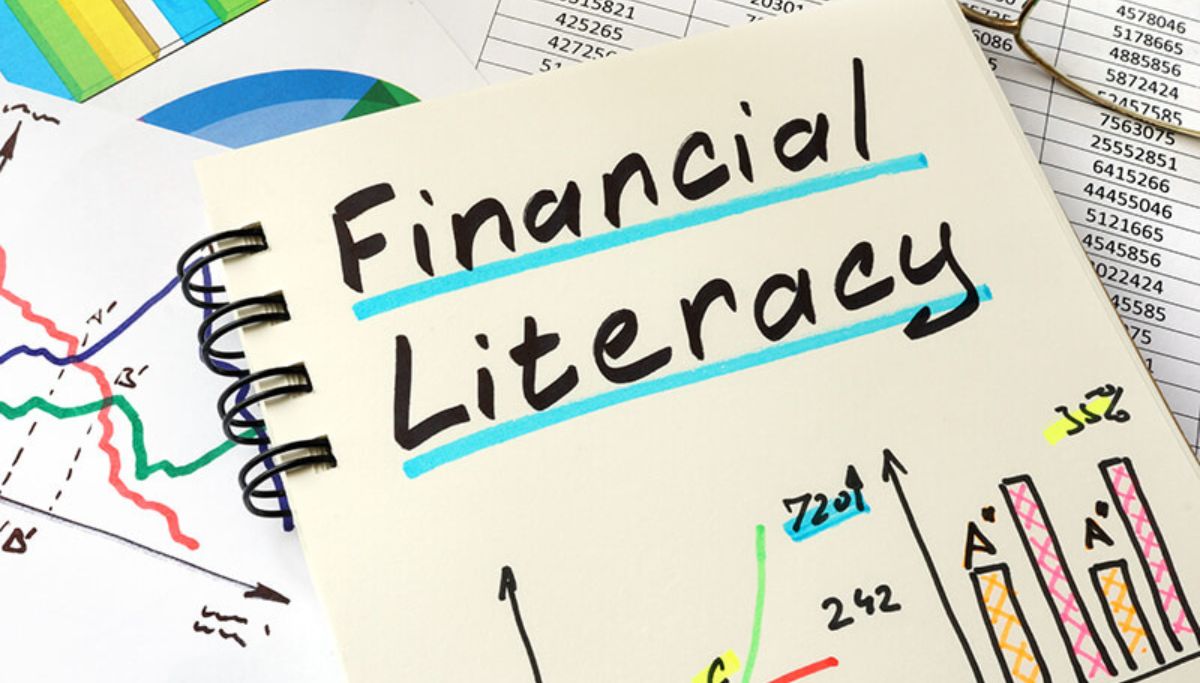Table of Contents
Financial literacy is the cognitive understanding of financial components and skills such as budgeting, investing, borrowing, taxation, and personal financial management. The absence of such skills is referred to as being financially illiterate. Most of the population around the world is considered financially illiterate. Being financially literate allows an individual to be better prepared for specific financial roadblocks, which, in turn, decreases the chances of personal financial distress. Achieving student financial literacy is crucial in today’s society due to everyday facets of life, such as student loans, mortgages, credit cards, investments, and health insurance. Financial literacy for students consists of several financial components and skills that allow an individual to gain knowledge regarding the effective management of money and debt. Below are the fundamental components of financial literacy that every student must learn.

1. Budgeting
In budgeting, there are four main uses for money that determine a budget: spending, investing, saving, and funding. Creating the right balance throughout the primary uses of money allows students to better allocate their income, resulting in financial security and prosperity. In general, a budget should be composed in ways that pay off all existing debt while leaving money aside for saving and making beneficial investments.
2. Investing
To become financially literate, an individual must learn about key components in regards to investing. Some of the components that should be learned to ensure favorable investments are interest rates, price levels, diversification, risk mitigation, and indexes. Learning about crucial investment components allows students to make smarter financial decisions that may result in an increased inflow of income.
Also Read: 9 Common Financial Terms That You’ll Come Across As A Student
3. Borrowing
In most cases, almost every individual is required to borrow money at one point in their life. To ensure borrowing is done effectively, an understanding of interest rates, compound interest, time value of money, payment periods, and loan structure is crucial. If the criteria above are understood sufficiently, financial literacy for students will increase, which will provide practical borrowing guidelines and reduce long-term financial stress.
4. Taxation
Gaining knowledge about the different forms of taxation and how they impact a students net income is crucial for obtaining financial literacy for students. Whether it be employment, investment, room rentals, inheritance, or unexpected, each source of income is taxed differently. Awareness of the different income tax rates permits economic stability and increases financial performance through income management.
5. Personal Financial Management
The most important criteria, personal financial management, includes an entire mix of all of the components listed above. Financial security is ensured by balancing the mix of financial components above to solidify and increase investments and savings while reducing borrowing and debt. Achieving an in-depth knowledge of the financial components discussed above guarantees an increase in financial literacy for students.
The Key Components Of Financial Literacy
- Earning
- Saving And Investing
- Spending
- Borrowing
- Protecting
Reasons Why Financial Literacy For Students Is Important
When you send your student off to college, it is important that he or she has a good financial foundation. Financial education for college students gives them the ability to properly make important decisions based on their finances. College is often the first time that a budding adult has to make daily financial decisions, and it’s absolutely essential that they feel prepared.
College is often the first time these students are on their own. They may have to save money for food, entertainment, and school-related expenses. Without guidance, choosing the wrong financial path can lead to prolonging life goals such as owning a home or starting a family. Financial literacy education and paying for college encourages family conversations, hands-on learning opportunities, and financial independence.
Suggestions About Financial Literacy For Students
Multi-Generational Conversations
Consistently starting money-focused conversations with your college students can not only help them keep their budgets in check but can also help you proactively meet needs that may arise. If you want to succeed financially, you will need to get a handle on your finances. The first step in managing your money is to create a budget. The majority of students have more “wants” than they can truly afford. This has become more apparent since credit cards were introduced. Once a budget has been established by balancing your income with your expenses, begin eliminating any debt that is weighing down your monthly budget.
Working to eliminate debt can be a long process but it is worth the effort. After the debt is under control, you can save money for emergencies and long-term goals. A consistent relationship with a financial advisor is recommended for accountability. Involving yourself in this meeting will be advantageous to your financial skills.
Financial Planning For College Students Enables Financial Independence
As a college student is unlikely to be carrying a mortgage or providing for a family, however, the earlier you can prepare yourself for real-world scenarios the better. Financial independence can be difficult to achieve and some financial institutions struggle to provide the right resources.
Some financial institutions improve the relationship between potential and existing financial customers. The better the two can work together, the more beneficial. The more personalized financial planning for college students can provide confidence in their own finances. Financial education for college students should start long before filling out a college application or understanding the Free Application for Federal Student Aid (FASFA) application. The sooner you can educate yourself the greater the chance you have for long-term financial success.
PS: If there’s anything more you’d like us to know about. Add it to the comments section!
Thank you for reading this blog on ‘Know More About Financial Literacy For Students’ If you’d like to read more, here are some blogs that might be of interest to you:










0 Comments